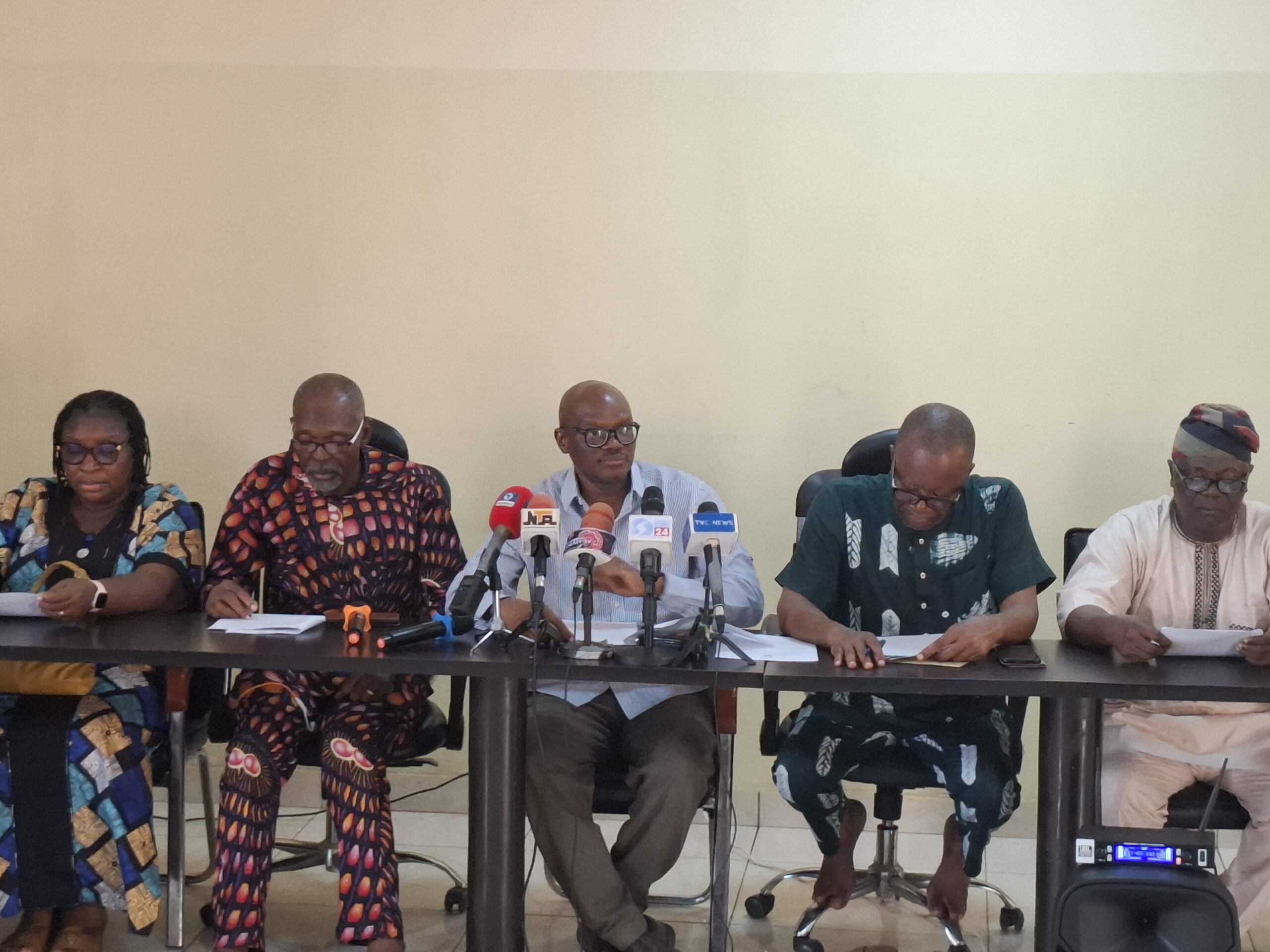- demand urgent action on 2009 agreement
- reject attempt to return them to IPPIS
From Fred Ezeh, Abuja
Academic Staff Union of Universities (ASUU) has accused the federal government of frustrating efforts to establish good industrial peace and harmony in the universities.
The Union said that the federal government’s actions, particularly as regards the 2009 agreement, don’t suggest that it wants lasting industrial peace and harmony in the universities.
ASUU President, Prof. Chris Piwuna told journalists at a press conference in Abuja on Friday that about five months after the Union had concluded renegotiation and discussions on the 2009 agreement with the Federal Government team led by Dr Yayale Ahmed, no decision has been taken by the government , nor was any one talked about the signing the agreement and implementing it.
He said: “We had several meetings with the team shortly its inauguration in 2024 with the objective of reviewing the Nimi Briggs Committee’s Draft Agreement. We concluded the series of the meetings on the matter in December 2014. The Yayale Ahmed-led committee were supposed to get back to us, perhaps, after they had met with their Principals to inform them about the outcome of the meeting vis-a-vis the resolutions.
“But from that meeting in December 2024, this is 22nd of May, nothing has been heard or done about it. For us in ASUU, this is an engagement that started in 2017. We are talking about engagement on one issue, the 2009 agreement. So, for us, it’s not about just the Yayale Ahmed-led committee members. We think that they have worked hard and that we have finished the work with the Federal Government team. And that we need to hear from them. But I haven’t heard from them.
“We expect that the Yayale Ahmed-led committee should meet their principals as quickly as possible and get back to us as soon as possible. We have exhausted our patience in waiting for this renegotiated agreement. You can see how much importance we have attached to this 2009 renegotiated agreement because it contains the solutions to many of the challenges of ASUU members.
“The Yayale Ahmed-led committee highlighted some of their challenges to us, which we can’t make public for now. But to us, what they highlighted are not enough reason to delay the signing of the agreement and implementation thereafter. We think they should act, and we hope they will act very soon.”
The ASUU President also registered the frustrations of the Union members to the bureaucratic inefficiencies regarding the exit of ASUU members from the Integrated Payroll and Personnel Information System (IPPIS) as directed by the President, Bola Ahmed Tinubu, in 2023.
He alleged that the Office of the Accountant-General of the Federation is deliberately frustrating the effort so it could retain ASUU members in the IPPIS platform despite the presidential directives that ASUU members be removed from the payment platform.
He said: “We cannot continue to allow our vice-chancellors, principal officers of our universities, to come to the Office of the Accountant General of the Federation to resolve issues regarding our salaries that either had been resolved at our university level. That is the idea. That is what we are asking for.
“But we see this thing about GIF-MIS and IPPIS beyond just the interference by the Office of the Accountant General of the Federation, Office of the Head of Service of the Federation, and the rest of them. It is an attempt to frustrate us. It is an attempt to get us back to the IPPIS platform. That is how we see it. And any further attempt by them to do this, and if this is not reversed, it will also snowball into a situation that will be too hot for them to handle. That is what we feel.”
He recalled that the Federal Executive Council (FEC) met in December 2023 and instructed that we should be taken of IPPIS. The relevant people did not act on the matter until September-October 2024, which was almost a whole year. A whole year for them to just act. And even at that, they did not act on their own. It was a result of a threat by our union.
“With the intervention at that time of the National Security Adviser, Nuhu Ribadu, that was what led the agents of government, the bureaucrats, to remove us from the IPPIS, and even at that they are still interfering. We met several times at NUC with the former acting executive secretary, and we drew up a timeline for the transition. Sadly, it never took place.
“We waited 10-11 months before they were able to do it. That tells you one thing, that these people are not interested, they are not willing, and they will continue to create problems for us,” he said.

